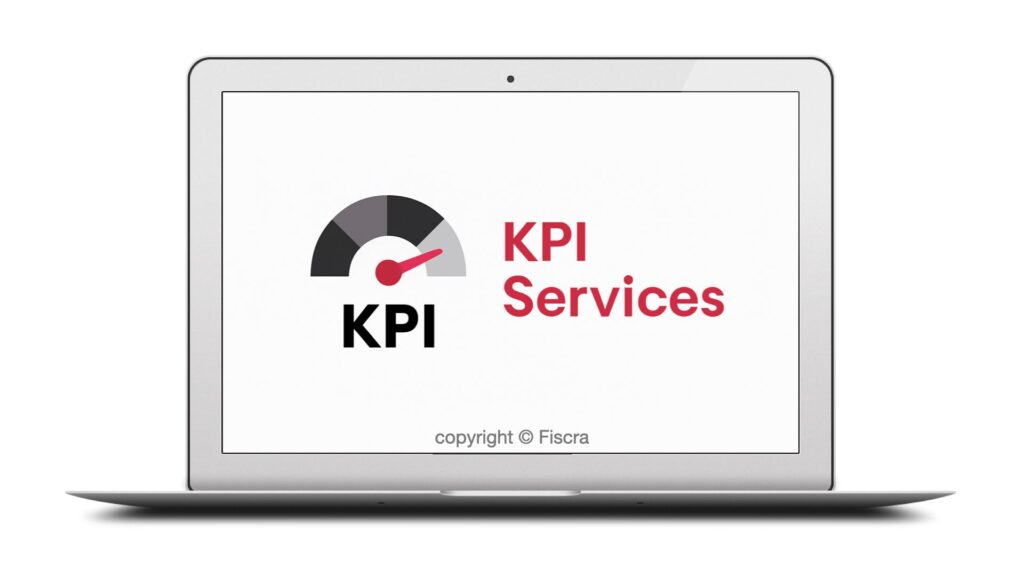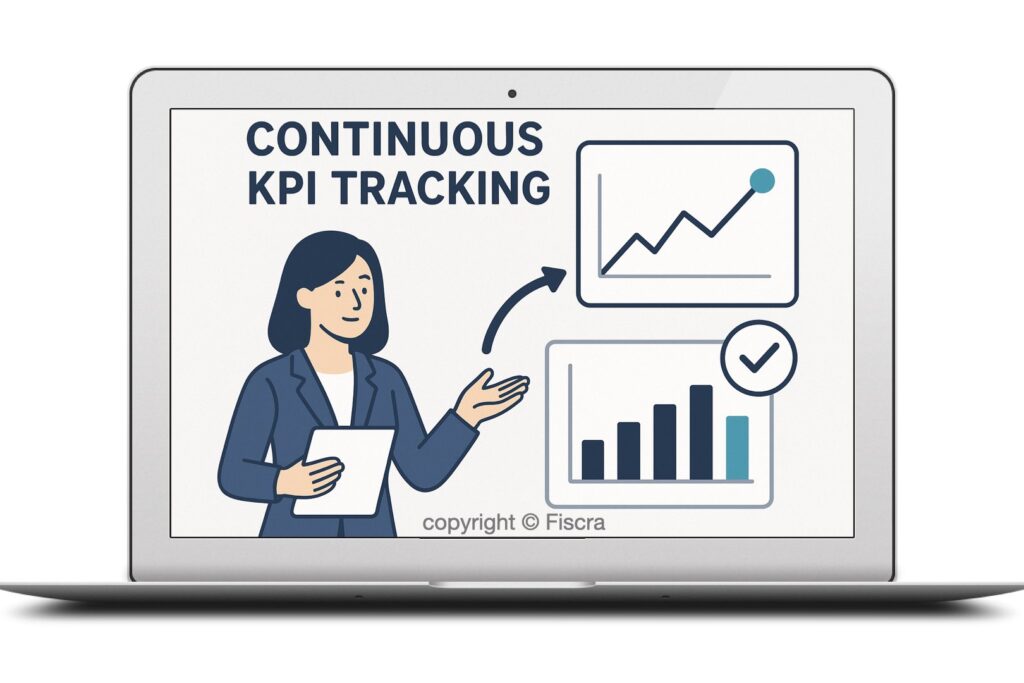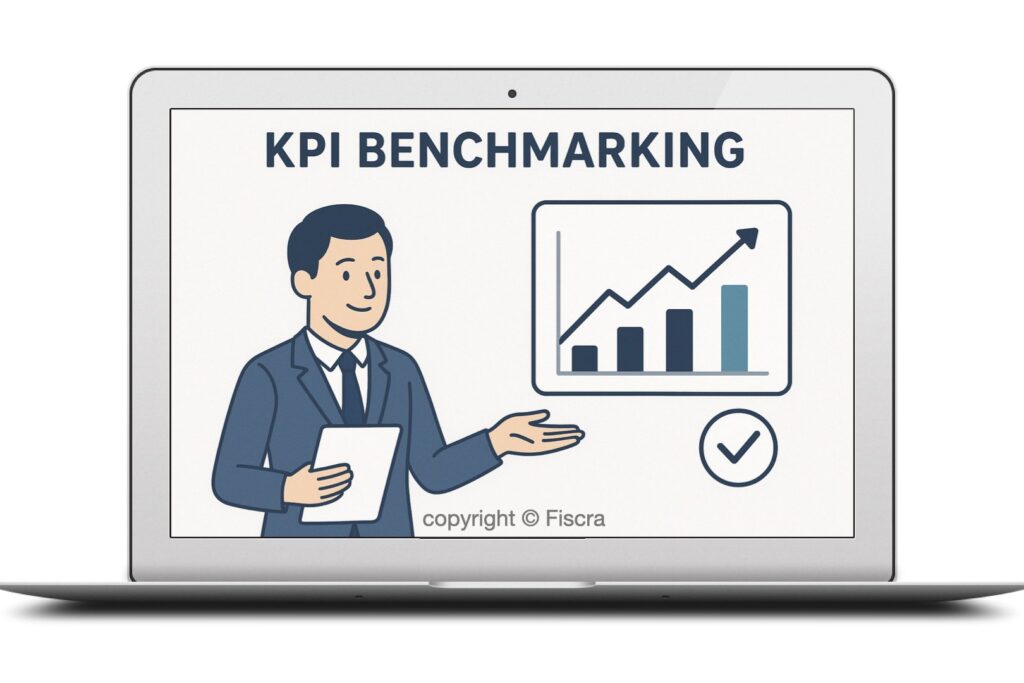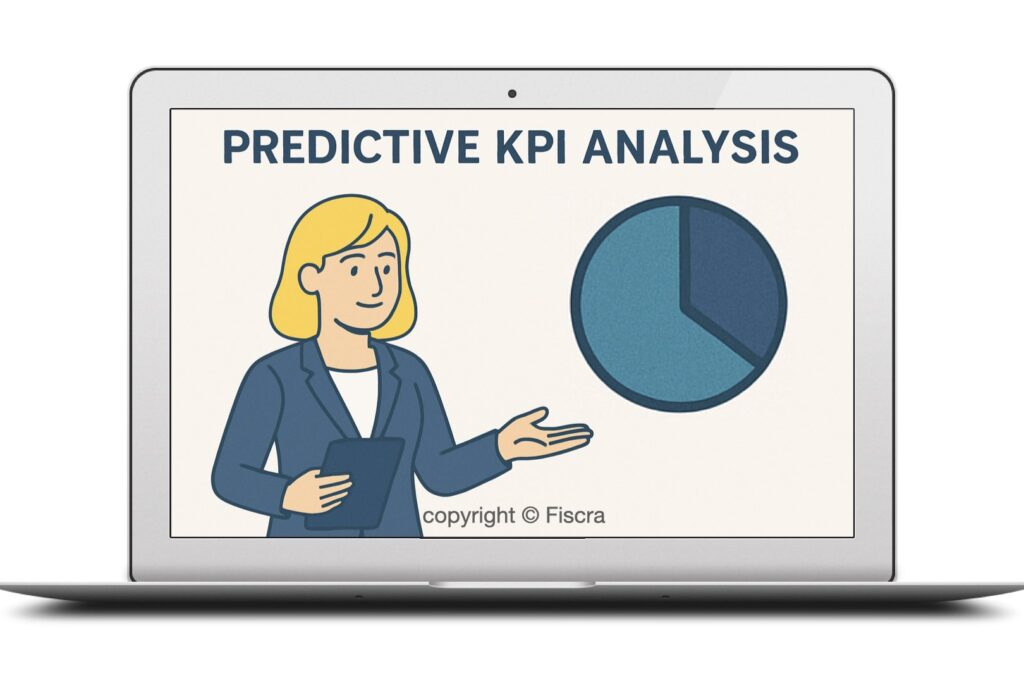Professional KPI Services

Key Performance Indicators (KPIs) are benchmarks that indicate how closely a business aligns with its strategic goals. Careful KPI analysis, in turn, helps keep performance in check and adhere to the budget plan.
At Fiscra, we provide KPI services and elevate KPI analysis to a new level, giving you not only precise data but also strategic guidance on how to convert raw numbers into profitable decisions.
Understanding KPI Analysis
Companies track numerous metrics to evaluate their performance and assess how well their plans are executed. Yet, only a handful of valuable metrics demonstrate real progress or its lack. KPI analysis enables the gathering and efficient assessment of these metrics, transforming numbers into valuable insights.
What are KPIs (Key Performance Indicators)?
Key Performance Indicators (KPIs) are the values that demonstrate how efficiently a company works towards its set goals. KPIs are a convenient tool that links high-level decisions with everyday operations. KPIs are tied to outcomes, unlike general metrics that simply demonstrate activity, which makes them more valuable.
For example, a website’s traffic is just a generic metric that does not reflect its efficiency. The conversion rate, on the contrary, is a KPI because it reflects how well the website turns visitors into customers.
What is KPI analysis?
KPI analysis is the process of reviewing and assessing the key business metrics to identify areas of improvement and gain an understanding of how well the company performs in its niche. Managers benefit from KPI analysis by gaining insights into which areas of the business require their attention, additional resources, and how the long-term strategy can be adjusted for more efficient implementation.
KPI services enable highlighting the company’s strong points that can be replicated and pointing out issues that require immediate attention. Besides, KPI analysis contributes to a business’s departments’ accountability due to visible benchmarks toward which each team should strive.
One of the most widespread KPIs is Customer Acquisition Cost (CAC). Analysis may indicate that the CAC grows faster than expected, potentially eroding the budget in the future. One possible solution to the issue would be to scale back marketing campaigns, narrow targeting, or develop a budget retention strategy. As a result, KPI analysis becomes more than a simple report; it is a strategic tool that helps to adapt quickly in a dynamic market.
KPI Services at Fiscra
KPIs are flexible metrics, and no two businesses will have the same parameters to track their performance and growth. That’s why at Fiscra, we provide personalized KPI analysis across different business areas. Finance, sales, operational costs, employees, etc. – there’s a KPI service that will help your business to remain on top of its game.
Financial KPI Analysis
-Revenue growth.
-Profit margins.
-Return on investments.
-Cash flow.
-Asset liquidity.
These metrics help us determine the profitability of our current business strategy.
In terms of costs, the expenses-to-revenue ratio analysis helps our specialists to find inefficiencies and areas for improvement. For example, we can identify overspending in operations before it impacts profits and devise a plan to correct the project accordingly. A clear financial KPI analysis gives companies the necessary confidence for strategic planning and data-driven investment decisions.
Operational KPI Analysis
-Cost per unit.
-Cycle time.
-Utilization rate.
Assessment of these metrics enables the company to identify inefficiencies, such as production delays or underutilized equipment.
Bottleneck identification is another operational KPI analysis purpose. For example, a company discovers a lengthened product delivery cycle via operational KPI analysis. One possible improvement step is to reduce the number of steps required to deliver the product and redistribute operational resources. Reduced costs and faster delivery would be direct benefits, in addition to increased competitiveness and customer satisfaction.
Sales & Marketing KPI Analysis
-Lead conversion rate.
-Customer Acquisition Cost (CAC).
-Customer Lifetime Value (CLV).
-Marketing ROI.
Such a detailed analysis helps determine which marketing channel is the most prominent and what steps can be taken to adjust the marketing strategy accordingly.
Customer KPI Analysis
Retention and churn rates are vital components of the customer KPI metrics. Retention measures the percentage of customers who stay with the brand, and the churn ratio indicates the threshold at which people leave the brand. Analysis of these metrics can help the business spot early signs of dissatisfaction before it turns into significant losses.
Employee Performance KPI Analysis
Satisfaction and employee engagement are also among the vital metrics that show what the company can do to boost morale and enhance inner performance.
Training and qualification courses completion rate demonstrates how well the company can sustain its inner teams for long-term growth and development. For example, training KPI analysis can reveal that specialized training is more profitable in the long-term perspective than general programs. Employees’ KPIs analysis is a secure way to build a strong foundation for any growing business.
Strategic KPI Dashboard Development
Each department within your company may have a tailored dashboard that can be discussed and used as a convenient reference for future strategic moves. We also provide C-suite dashboards for executive teams to gather cross-department KPIs and present the overall company’s performance conveniently. Dashboard development is a concluding service that helps us to organize and present all the data as actionable insights.
Advanced KPI Monitoring and Reporting
KPI analysis is not a one-time exercise. Consistent monitoring and regular reports are necessary to maximize the benefits of the company’s KPI evaluation. Fiscra provides advanced tools and reporting systems for companies to continue evaluating their performance and build new strategies accordingly.

Continuous KPI Tracking
Tools for continuous KPI tracking enable businesses to stay ahead of the market, rather than always being reactive to changes. Real-time KPI monitoring enables quick responses to emerging challenges.
Automated reporting and alert systems also contribute to streamlining the process. They reduce manual error and provide accurate, up-to-date information regarding the company’s performance. The respective team can adjust alerts to react to sudden changes in the company’s KPIs and react accordingly. For example, an alert can notify the technical team of increased website downtime and reduced traffic, which, in turn, will enable a swift reaction and minimize damage.
Continuous KPI tracking helps to keep a hand on the company’s pulse and confidently make proactive decisions based on operational metrics.

KPI Benchmarking
KPI benchmarking is a valuable tool that enables companies to compare their performance with that of their competitors and industry standards. Businesses can see where they stand in the market by evaluating their CAC, revenue growth, or employee turnover.
Fiscra has extensive experience in various financial fields and has access to relevant industry data for benchmark tests. KPI benchmarking will help you clearly identify your business’s strengths and build roadmaps for further progress.
Benchmarking can also help to set realistic and achievable goals. For example, a CAC higher than the market’s average can indicate the need to re-evaluate the marketing strategy. With a detailed benchmark analysis, you gain valuable context for how your business operates and insights on how to surpass your competitors.

Predictive KPI Analysis
Fiscra can provide services not only for the ongoing KPI assessment but also for building predictive KPI models. We utilize current data, combined with recurring market trends, such as sales, customer behavior, and operational efficiency, within the company, to develop multiple models of potential projects and strategy outcomes.
Predictive KPI analysis, combined with ongoing metrics evaluation, ensures that short-term operations contribute to long-term goals. Wth predictive KPI analysis, you can make important decisions today that will build a prosperous future for your business tomorrow.
